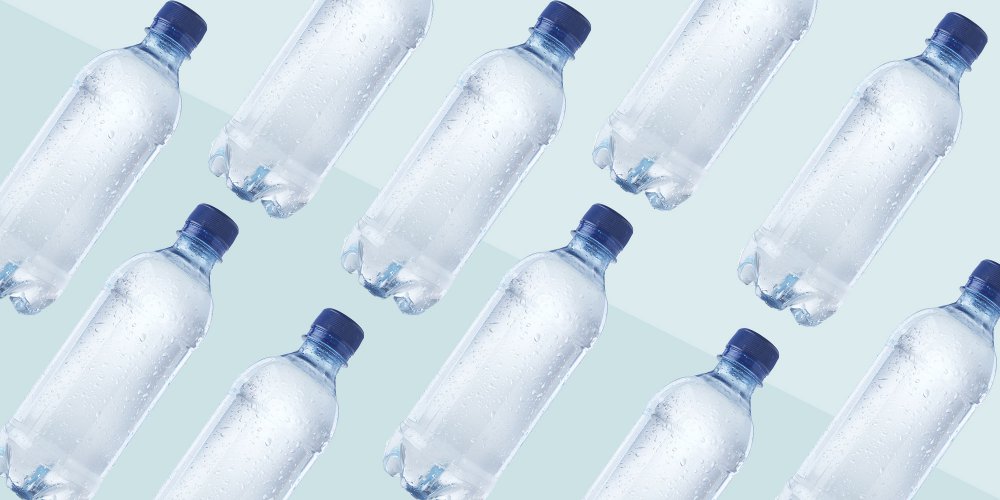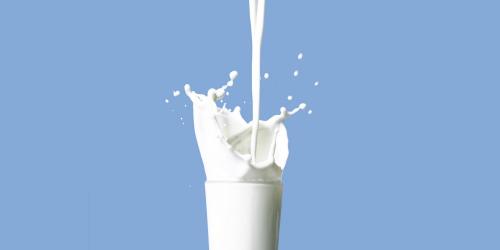In the wonderful world of advertising, their richness in mineral salts promises to reduce the risk of deficiencies . "Last century, mineral waters were prescribed by doctors , who still advise some in cure," says Dr. Estrade, urologist specializing in the recurrence of kidney stones at the Angouleme hospital. A water wins this name when the Academy of Medicine judges that it has a total amount of minerals - the so-called dry residue - beneficial.
Mineral water: knowing how to decrypt labels
Long regarded as " medicinal waters ", mineral waters must be consumed with discernment. According to Dr. Vincent Estrade, who advocates for increased awareness of the art of balanced drinking, it is therefore essential to look regularly at a few lines of bottle labels. To your glasses!
- Calcium factor (Ca)
A water is said to be rich in calcium when it has a concentration of this component greater than 120 mg per liter. It can help women who do not consume enough dairy products, especially at crucial times like pregnancy or menopause. It can especially be beneficial in cases of osteoporosis .
"The balanced calcium intake is estimated to be between 800 mg to 1 g per day," says Dr. Estrade. "If you like dairy products a lot, choose a water that is low in calcium. And conversely. "
- Sodium factor (Na)
A so-called high sodium (Na) water contains more than 360 mg per liter. It facilitates the digestion and the maintenance of a good hydration of the body.
"A diet too salty causes a decrease in the ability of the kidneys to properly reabsorb calcium in the urine. The amount of calcium in the urine increases. The risk of calculation also "alerts the urologist. Moderate your salt intake by taking care not to exceed 8 g of salt per day, food and drink combined.
- Sodium bicarbonate factor (NaHCO3)
A water is considered rich in bicarbonates when it displays more than 600 mg per liter. Very present in sparkling waters , this precious component reduces the acidity of the body (therefore recommended in athletes), improves hydration and reduces muscle fatigue .
These waters can also be beneficial for people who have diabetes or a metabolic syndrome - that state of insulin resistance that precedes diabetes.
By alkalinizing the urine (translate: their pH becomes neutral, between 6.5 and 7), the water also favors the dilution of uric acid stones (about 15% of them). The downside: these waters are also rich in salt, which can lead to problems of blood pressure and heart failure. We avoid drinking them in the long run! A water can contain up to 1.2 g of salt per liter ... it's going fast.
- Magnesium factor (Mg)
This is probably the element that the general public is most aware of. A water is said to be "rich in magnesium" if it contains more than 56 mg per liter. Known to relieve fatigue and stress, the grail of good humor and good transit is not harmless. If it helps fight constipation , it can also trigger diarrhea and intestinal spasms, or even disrupt the assimilation of valuable nutrients.
To mix the mineral waters for a better equilibrium
In short, mineral waters are not insignificant and should not be consumed with eyes closed. To use them wisely and avoid troubles due to poorly balanced mineralization , the micro nutritionist Valérie Espinasse advises to mix them, to change them often and of course to drink abundantly.
People affected by kidney stones (10 to 12% of the French population) must choose low mineralized waters, Dr. Estrade said. Referent committee Lithiase of the French Association of Urology, he recommends they drink enough to urinate a minimum of 2 L per 24 hours to dilute the urine and reduce the risk of crystallization.
For this population at risk, it is better to avoid the mineral waters, too rich, in favor of city water, which can alternate with some spring water. "The regulations state that tap water must not contain more than 150 mg of calcium and 15 mg of salt per liter. It is a good guarantee of neutrality. It is drinkable, balanced in fluoride, sulphates, magnesium or other nitrates and very regularly controlled "argues the urologist.
And city water in all this?
" The city water is an excellent drink in the long run, " says Dr. Estrade. Limestone ? "It scours the pipes but not the body," corrects the practitioner.
Its small chlorinated taste ? "It comes from the fact that it is cleaned originally, to eliminate any microbial germ, but it does not lose its mineral and ionic composition. "
As for groundwater pollution, the doctor points out a global problem: studies reveal more and more the presence of pollution in bottled water , mineral and source combined. "In the toxic sense, tap water is checked very regularly, in proportion to the number of inhabitants of the city concerned". A fortiori, Paris water is the most controlled in France .




